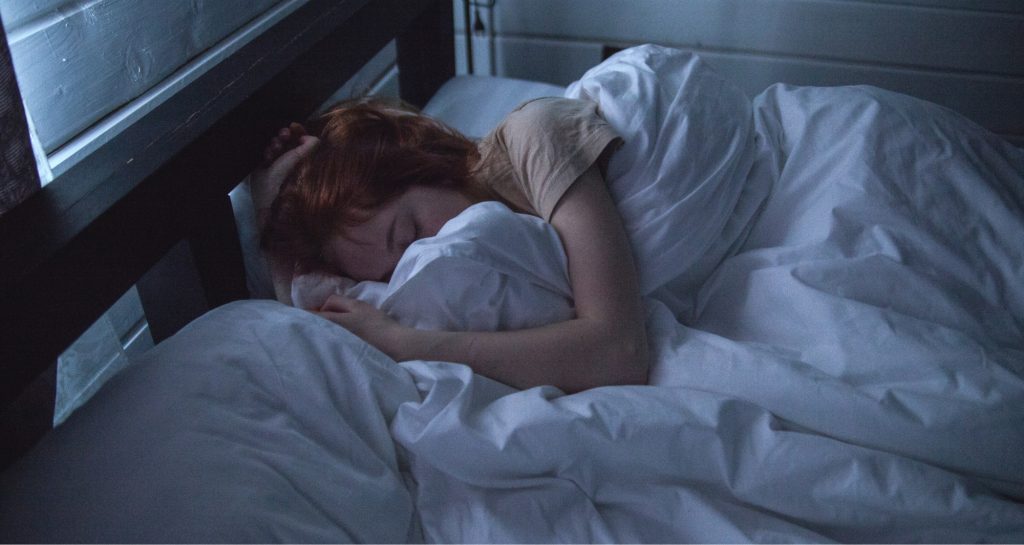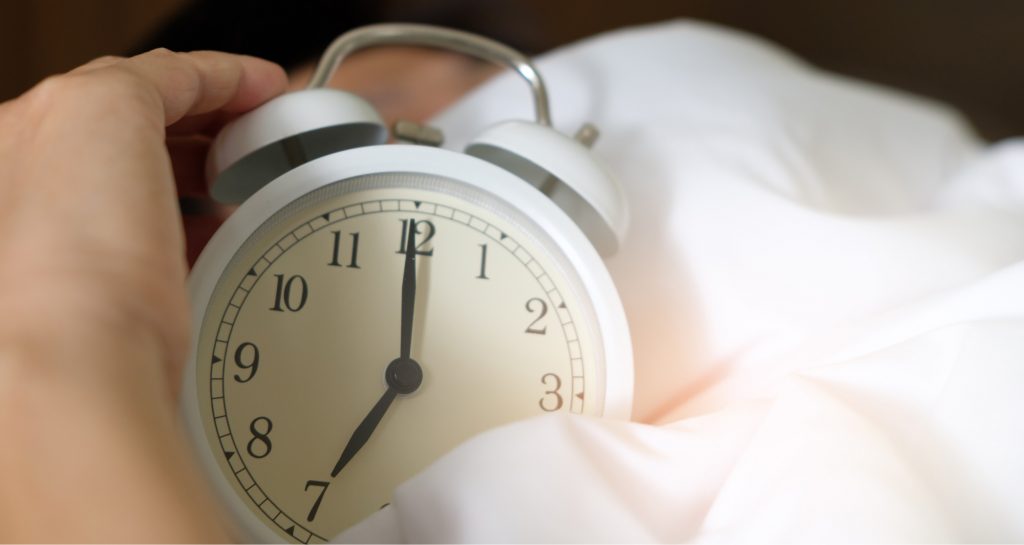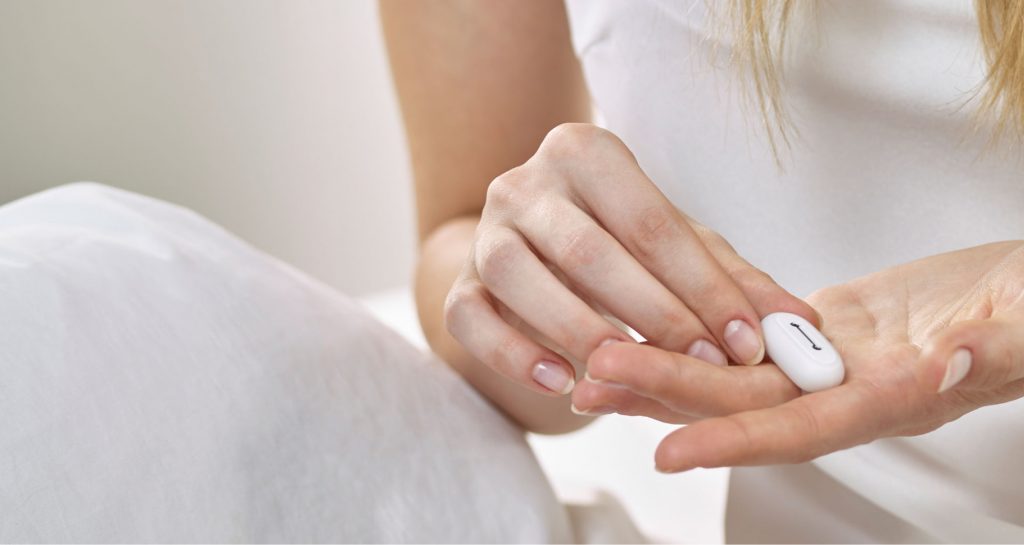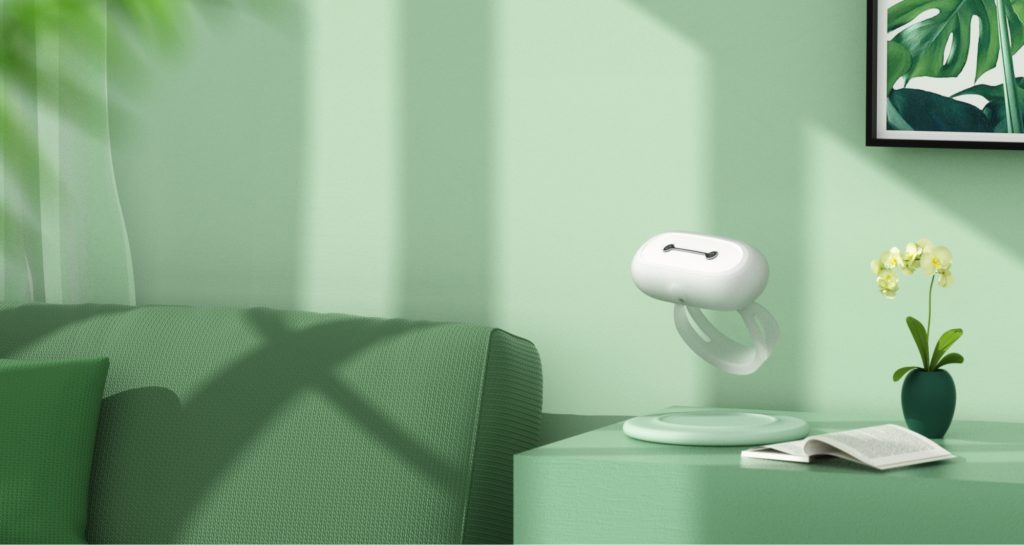4 Solutions to Sleep Problems-Sleepon

Sleep is essential for our physical and emotional well-being. It helps us recover from stress, maintain good moods, and keep our bodies strong. But sometimes, sleeping too little or too long can cause serious health problems.
If you’re having trouble sleeping, there are several things you can do to help yourself fall asleep faster and stay asleep longer. Today, we’re going to cover four main solutions, including have a sleep tracker, to your sleep problems.
Common Sleep Problems
There are plenty of sleep problems among us, but insomnia and sleep apnea are two of the top ones, according to Cleveland Clinic.
Insomnia
According to Journal of Clinical Sleep Medicine, having a hard time to go to sleep, waking up too early, or feeling unrested after nights of sleep can all be considered as insomnia. In short, insomnia is a sleep disorder that you have trouble falling or staying asleep.
Sleep Apnea
Sleep apnea is a sleep disorder that you may experience breathing repeatedly starts and stops, according to Mayo Clinic. If you’re experiencing loud snore and feeling tired after a night of sleep, you might have sleep apnea.
In general, there are 3 types of sleep apnea:
- Obstructive sleep apnea, which affects 2% to 9% of the adult population in the US, is a respiratory disorder that causes people experiencing either complete or partial collapse of the upper airway during sleep. It can lead to trouble breathing in sleep and even disturb your bed partner.
- Central sleep apnea, which appears among 0.9% of those who are over 40, happens when your brain doesn’t send proper signals to activate respiratory muscles. It is mainly defined by pauses in breathing because of lacking respiratory effort in sleep.
- Complex sleep apnea syndrome, which is also known as treatment-emergent central sleep apnea, includes the symptoms that both has both obstructive sleep apnea and central sleep apnea have.
Common Causes of Sleep Problems
If you struggle with insomnia, there are some common causes for poor sleep quality. These include anxiety, depression, pain, and certain medications. Other factors that can contribute to sleepless nights include environmental conditions such as noise, light, temperature, and humidity.
If you struggle with sleep apnea, you should know that in general, there are several causes for it:
- Obesity. Obesity greatly increases fat deposits around your upper airway that can obstruct your breathing.
- Neck circumference. People that have thicker necks might have narrower airways.
- Use of alcohol. It relaxes the muscles in your throat, which can worsen your sleep apnea.
- Smoking. Smokers are three times more likely to have obstructive sleep apnea. Smoking can increase the amount of inflammation and fluid retention in the upper airway.
Learn more at Mayo Clinic
4 Solutions to Sleep Problems
If you’re struggling with the above sleep problems, here we’ll talk about four main solutions to your insomnia or sleep apnea.
Better Your Sleep Hygiene

1. Set an alarm clock.
Set an alarm clock for the same time each night. You should also try to keep your bedroom dark and quiet. Light from outside sources can disrupt your circadian rhythm, making it harder to fall asleep.
2. Create a bedtime routine.
Create a bedtime routine that includes getting ready for bed, reading, relaxing, listening to music, take a bath, or winding down before going to sleep. Form the habit to help with your sleep problems.
3. Avoid caffeine after noon.
Avoid caffeine after noon because caffeine stimulates the nervous system and keeps us awake.
4. Don’t stay up late.
Simply try to go to bed early. If you find yourself staying up late at night watching TV or surfing the internet, try turning off your devices before bedtime. Make sure you go to bed at a reasonable hour. Try not to fall asleep before 11pm.
5. Don’t nap too much during the day.
Sleep Society says don’t exceed 45 minutes of nap during the because it can lead to deep sleep and interfere with your normal body clock which will alternately cause you having a harder time to fall asleep at night.
6. Keep your bedroom cool.
Studies find that between 60 and 67 degrees Fahrenheit is the best for people to fall asleep at night. Don’t forget to make your bed and pillow comfortable as well.
7. Do some exercise.
Exercise overall can reduce your stress, boost your mood, and eventually help you sleep better at night. But just remember to finish the exercise hours before bedtime to give your body time to cool down. Exercise boosts endorphins, which help reduce pain and anxiety.
8. Don’t drink too much alcohol.
Alcohol consumption could throw off your sleep patterns. UC Davis Health says: “alcohol can help you fall asleep, but not necessarily stay asleep or sleep well.”
9. Write a sleep diary.
Write down your sleep routine for one to two weeks (bedtime, wake time, naps, caffeine use, etc.) or with the help of a sleep tracker. The information can help you or your health provider understand patterns or behaviors of your insomnia.
Or you can keep on doing it for two months to see if you’ll have any progress in sleep.
10. Track your sleep at night.

Get a sleep tracker. Go2sleep could be a choice as your sleep tracker. It can track sleep data all night, provide comprehensive sleep report with accurate data. Besides, it is small and light. More importantly, it offers you the best value and Sleep Foundation named it the best value sleep tracker of 2022.
Learn more 10 Tips for Sleep Hygiene Checklist to Better Your Sleep
Inspire sleep treatment
Inspire sleep treatment provides you with a handheld remote which you can easily turn on before going to bed and off after you wake up. It has been FDA approved since 2014 so you know it is proven safe and effective.
One thing needs to be noticed is that inspire sleep treatment is a small outpatient produce so you may take up to 30 days to heal after the procedure. You can go back to your normal life once it’s activated. The battery life is designed to last 7 to 10 years.
Lear more Inspire Sleep Treatment: 6 FAQs Answered
Sleep Aid for Seniors
Many resources have recommended some easy-to-get medication or just supplements over the counter to help senior improve their sleep during the night:
- Diphenhydramine (Benadryl). Diphenhydramine is known as a drowsy or sedating, antihistamine as it makes you sleepy. Side effects might include daytime drowsiness, dry mouth, constipation, and urinary retention. If you take it at night, it can help you fall asleep faster.
- Melatonin. Being naturally reduced by aging, melatonin is a natural chemical found in plants and animals and has long been associated with control of the sleep–wake cycle, indicated by Wikipedia. Research suggests supplements that consist of melatonin might be helpful in reducing the time to fall asleep — although the effect is typically mild. Headaches, nausea, and daytime sleepiness are common side effects.
- Valerian. Valerian is an herb commonly used for sleep disorders, especially insomnia. Supplements made from this plant can sometimes be taken as sleep aids for seniors. Although the knowledge of valerian is limited because few studies have been done to analyze its effects on different conditions.
Learn more Sleep Aid for Seniors: 5 Ways to Help Your Loved Ones Sleep Better
Best Cheap Sleep Trackers
If you would like to know your sleep better, it would be a good choice to purchase a cheap sleep tracker with good value. Here we’ll showcase 5 cheap sleep trackers that can save your sleep study cost.
Best Cheap Sleep Trackers
If you would like to know your sleep better, it would be a good choice to purchase a cheap sleep tracker with good value. Here we’ll showcase 5 cheap sleep trackers that can save your sleep study cost.
Go2Sleep
Price: $99 (Hot Summer Sale)
Sleep Tracker Type: wearable-ring
Why Go2sleep:
- Best Value Sleep Tracker 2022 – Sleep Foundation
- Light Weight (6 grams)
- Perfectly fits your finger
- Rich Data (10 metrics)
- Comprehensive sleep report
Qura Ring
Price: $299
Sleep Tracker Type: wearable-ring
Why Qura Ring:
- Best Design Sleep Tracker 2022 – Sleep Foundation
- Light weight with four color options
- Long battery life
Night Owl Home Sleep Test
Price: $99.95
Sleep Tracker Type: finger wraps
Why Night Owl:
- Convenient at-home sleep test
- Detailed sleep report reviewed by a sleep physician
- Results available within 3-5 working days
Fitbit
Price: $109.95 (on sale)
Sleep Tracker Type: smartwatch
Why Fitbit:
- Daily readiness
- Heart health
- Health metrics
- Stress management
Kokoon Nightbuds
Price: $274.29
Sleep Tracker Type: earbuds
Why Kokoon Nightbuds:
- Adaptive audio to help you sleep
- Unique comfort to fit your ears
- Noise masking to protect your sleep and relaxation
Learn more 5 Cheap Sleep Trackers to Save Your Sleep Study Test Cost
Conclusion
Sleep and wellness are always linked to each other so it’s essential to know what sleep problems are out there and what solutions to help with them.
This article identified two of the top sleep problems – insomnia and sleep apnea and four main solutions to them.

In general, you can solve sleep problems by changing your sleep hygiene but sometimes you might need help from inspire treatment if your sleep apnea issues are serios. Besides that, you can always consider purchasing a sleep tracker, like Go2Sleep, to monitor your sleep to know it better to either prevent the problems to become worse.
References
What Are the Best Ways to Treat Sleep Disorders?









